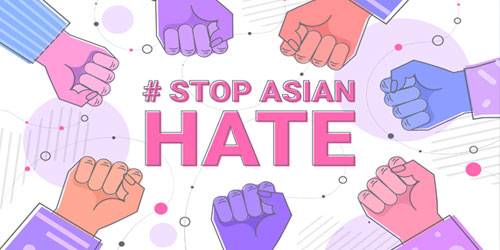Zhou Min: The Academic Career and Achievements of a Chinese American Female Academician
Zhou Min is an academician of the American Academy of Arts and Sciences (AAA&S), tenured Professor of Sociology and Asian American Studies at the University of California Los Angeles (UCLA) and Mr. & Mrs. Wang Wensianng foundation for US-China Relations, Director of Asia Pacific Center, and distinguished Professor of Sociology at Zhejiang University, China. She received her BA in English and Literature from Sun Yat-Sen University, China in 1982. Later, she received her MA and PhD degrees in Sociology from the State University of New York at Albany respectively in 1985 and 1989. Her former experiences in academia include Assistant Professor of Department of Sociology at Louisiana State University (1990-1994); Department Chair of Asian American Studies at University of California, Los Angeles (UCLA) (2001-2005); Professor and Department Chair of Sociology, and Director of the Asian Museum at Nanyang Technological University in Singapore (2013-2016).

Zhou Min is involved in many different areas of research including: immigration and development, overseas Chinese, racial and ethnic studies, Asian American studies, and urban sociology. She has accomplished significant research on immigrant transnationalism, Asian intercontinental immigration, overseas Chinese, the new second generation, Asian Americans, immigrant entrepreneurship, American ethnic language media and ethnic auxiliary education system. She has published 19 academic monographs and more than 200 articles in well-known academic journals, and the number of Google Scholar citations has exceeded 32,000. She has been awarded the 2017 Outstanding Professional Achievement Award of the International Immigration Branch of the American Sociological Association and the 2020 Outstanding Academic Contribution Award of the Asian and Asian American Studies Branch of the American Sociological Association.
Publications, Academician of American Academy of Humanities and Sciences
On April 28, 2022, the American Academy of Arts and Sciences (AAA&S) announced the latest list of academicians and Zhou Min was awarded with PhD from the University of California, Los Angeles (UCLA). Among the 261 newly elected academicians this year, Dr. Zhou Min is the only Chinese American sociologist in the Department of Social Sciences.
With the great news, Professor Zhou Min said that she was pleasantly surprised and felt very lucky to have received this honor among the many outstanding scholars.
However, luck always favors those who are prepared. Zhou Min's area of research studies are in immigrant sociology, urban sociology, ethnosociology, and Asian American studies. Over the years, her research and publications have been overwhelming, and she has been leading these research fields for more than 20 years.
Throughout Zhou Min's major publications: "Chinatown: A Chinese Community with Socioeconomic Potential", "Growing Up in America: How Vietnamese Teenagers Adapt to American Society", "Contemporary Asian American Society", "Asian American Youth Culture and the Ethnic Identity”, “Changes in Chinese American Society”, “Contemporary Chinese American Society: Immigration, Race, and Community Change”, “Being Foreigner? Contemporary Chinese New Immigrants” etc., are all articles that discuss the root of American society, especially through the social changes of Chinese immigrants, analyze the essence through phenomena, and become valuable sociological documents.
Founded in 1780, the American Academy of Arts and Sciences is one of the oldest academician institutions and one of the most prestigious honor societies in the United States, as well as an academic center for independent policy research. Most of the Chinese academicians are well-known scientists such as: Qian Xuesen, Yang Zhenning, Li Zhengdao, Wu Jianxiong, Chu Diwen, etc. Chinese academicians in the liberal arts include: Hu Shi, Du Weiming, Geng Wu, Ha Jin, etc. Professor Zhou Min is the only female Chinese sociologist.

Studying in the United States, An in-depth exploration starting from Chinatown
As a proud student who came to the United States to study in the 1980s, how did Zhou Min start her studies in the United States and focus on immigration sociology as her main research field?
Zhou Min came to the United States in the mid-1980s as a self-funded international student. In order to pay for tuition and living expenses, she had to work and study. It was relatively easy to find a job in New York's Chinatown during summer break. New York was an international metropolitan city and the scene in Chinatown at that time seemed to display China in the 1920s and 1930s which shocked and fueled her curiosity with two questions. First, why did such a Chinatown exist in New York for more than a hundred years? Second, what role did Chinatown play in the integration of Chinese immigrants into mainstream American society? These questions were one of the reasons why she decided to do a doctoral dissertation two years later.
Zhou Min's mentor is a well-known urban sociologist. When he heard that Zhou Min was interested in choosing Chinatown as her doctoral dissertation research topic, he was not too optimistic about this topic. He believed that Chinatown has been finalized, and the research on Chinatown and overseas Chinese at that time were mainly historians and humanities scholars, and there was no sociological research. However, Zhou Min started an in-depth study of Chinatown from the perspective of sociology. In 1992, she authored and published her first book in English, “Chinatown” which opened up a new direction in the study of immigrant society in the United States. The book has become a classic in reference on Chinatown and overseas Chinese society.
Through in-depth research on Chinatown, Zhou Min came to the conclusion that Chinatown is not a slum that hinders the integration of immigrants into mainstream society. Moreover, it has the socio-economic and cultural potential, which is the driving force for immigrants to integrate into American society. Her conclusions were contrary to the sociological conclusions of the time and sparked a great deal of debate.
Zhou Min was the first sociologist to pay attention to the Chinatown phenomenon. Her research has expanded from Chinatown to the broader scope of the entire Asian American community, such as the new immigrant community, and the second generation of immigrants. She has continued to make achievements in her professional and interdisciplinary fields.

Devoted to study, the master of immigration research
Over the years, with the support and help of her family, Zhou Min has been assiduous in teaching and research participation, and has achieved fruitful results. Although she already has numerous publications, she continually contribute new research discoveries for more than 20 years.
She has published 19 academic monographs and more than 200 articles in well-known academic journals. Professor Zhou Min’s recent publications include: “The Paradox of Asian American Achievement in America” (English, co-author, 2015), “The Rise of the Second Generation of Immigrants in America” (English, Co-author, 2016), “Contemporary Overseas Chinese Society ” (English, editor, 2017), “Being Foreigner?––– Contemporary Chinese New Immigrants” (Chinese, editor-in-chief, 2021), of which “The Paradox of Asian American Achievement in America” has won five consecutive American academic awards. She co-founded the segmented assimilation theory with Professor Porters in 1993, making a major theoretical contribution to the study of second-generation immigrants in the United States.
The Google Scholar citations for her paper have reached 32,500 at the end of April 2022. She received the 2017 American Sociological Association International Immigration Chapter Outstanding Professional Achievement Award and the 2020 American Sociological Association Asian and Asian American Studies Chapter Outstanding Academic Contribution Award.
All of Zhou Min's family members are scholars. Her husband has also worked in academia prior to his retirement and her son is currently a tenured professor at the University of California, San Diego (UCSD). She said that she was awarded a member of the American Academy of Arts and Sciences, and her family was happy for her. Her husband, in particular, has been very supportive of her academic research and teaching over the years. He does not let Zhou Min be distracted by housework and takes care of household chores such as cooking and driving. He also helps to review, edit, translate, and proofread of her writings in Chinese and English.


Fight for equal rights, learn to dialogue
Zhou Min's research has always been in-depth and solid, keeping current, and has never stopped empirical observation and analysis of contemporary immigrant social phenomena. She said that the recent anti-Asian sentiments in American society are not an isolated short-term phenomenon. This kind of racial discrimination and hatred has always existed. It has its historical origin and systematization. Since the passage of the Chinese Exclusion Act in 1882 (even if it was repealed in 1943), it has never changed qualitatively and may intensify at a certain time, such as the declining of relations between China and US, the spread of the epidemic, etc.
It requires continuous efforts and unity of all of the ethnic groups to change this phenomenon. She was once inquired of what is the successful experience? She responded that for minorities, how can there be any shortcuts to the so-called success? It takes hard work, without other ways, and it is deliberately going the extra mile to prove that kind of success. People who do not have the pressure of racial discrimination do not have to try so hard and deliberately to prove themselves.
She said that it is very important for new Chinese immigrants to speak out collectively in society, and the act of speaking up is itself a progress. Even if everyone has different opinions, they still need to pay attention to expressing their own wishes and dissatisfaction. Of course, this should not be one-sided. A diverse community is a normal community. The Chinese should unite, but they must also learn to have dialogue and tolerance.
She emphasized that dialogue is different from debate, and the purpose of dialogue is to seek common ground while reserving differences rather than forcing unanimous approval or disagreement. Through dialogue, one can understand each other's ideas and requests. It is not aimed to debate and persuade others, which is not conducive to understanding and mutual trust.



(English Translation by Joey Yu)












